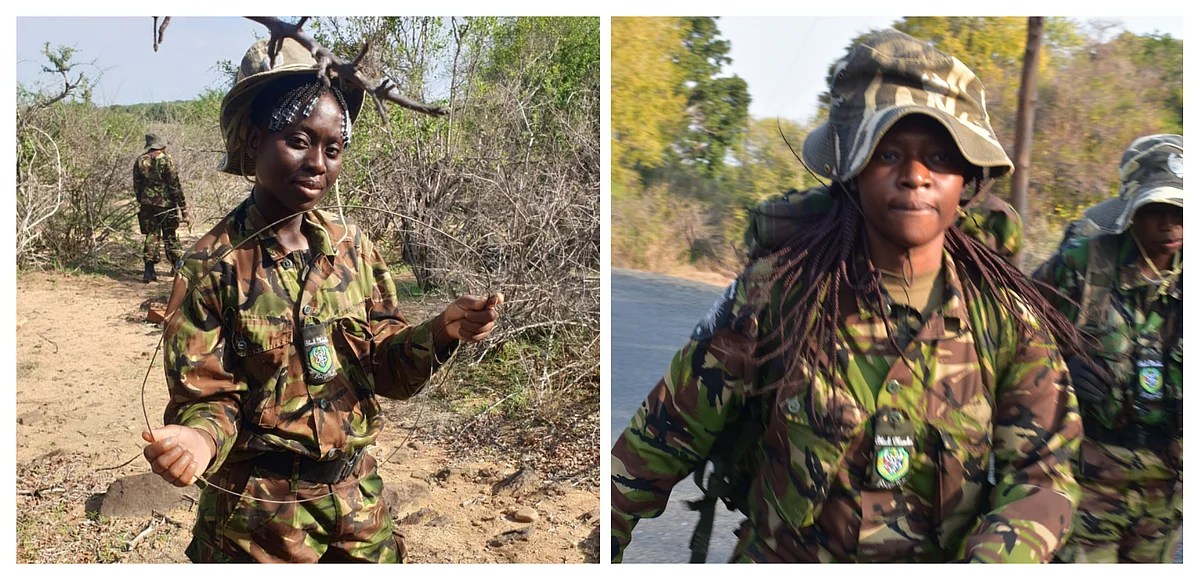Masingi’s family of nine stays at Makushane village of South Africa. Before working as a ranger for the Black Mambas, the woman in her 30s had attended college and worked as an assistant English teacher for Grades 1, 2 and 3 for six months at a private school, the Bethsaida Christian Academy.
“When I started working for the Black Mambas, my father did not approve as I was to work unarmed. He told me that I cannot be part of job which he considered unsafe.” But that didn’t stop her from becoming a part of the team in 2019. “I have learnt that one’s only limitation is oneself.”
The members of the force walk at least 20 kilometres every day. Getting to see wild animals up close during patrols makes her experience worthwhile, she said. “Women like me act as their eyes and ears because these animals cannot vouch for themselves. It is a mutual relationship, as animals help us too. When we work as a team, all of us feel safe.”
Masingi’s colleague Nkateko Mzimba is 33 years old and lives in Hluvukani, which is a rural area. From early on, she was in love with nature and wanted to work as a field guide. “My younger sister was also a Black Mambas’ staff and it inspired me to join.”
Mzimba had a tough life. She is the second born in a family with four children and no father. “My mother raised all of us. For many years, I survived with the help of social grant.” Social grant is a sort of financial help which unemployed people receive from the government every month. “But the paltry amount is not enough for an adult. I was doing matriculation (final year of high school) before I got this job.”
Today, like Masingi, Mzimba is happy to be part of the rhino conversation group. “There are challenges in conservation and the biggest of them is poaching,” she said.

